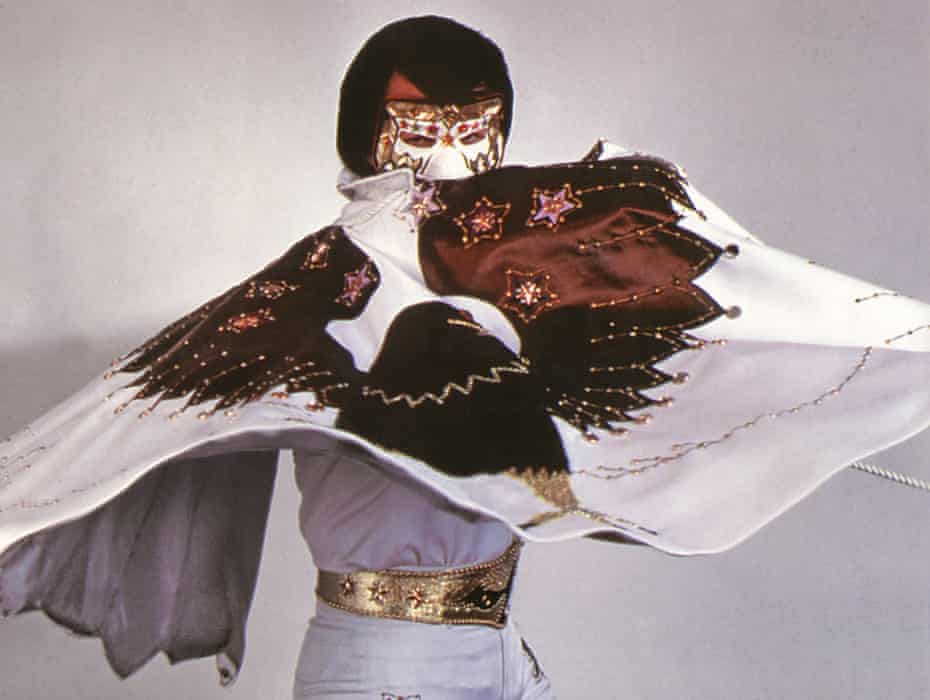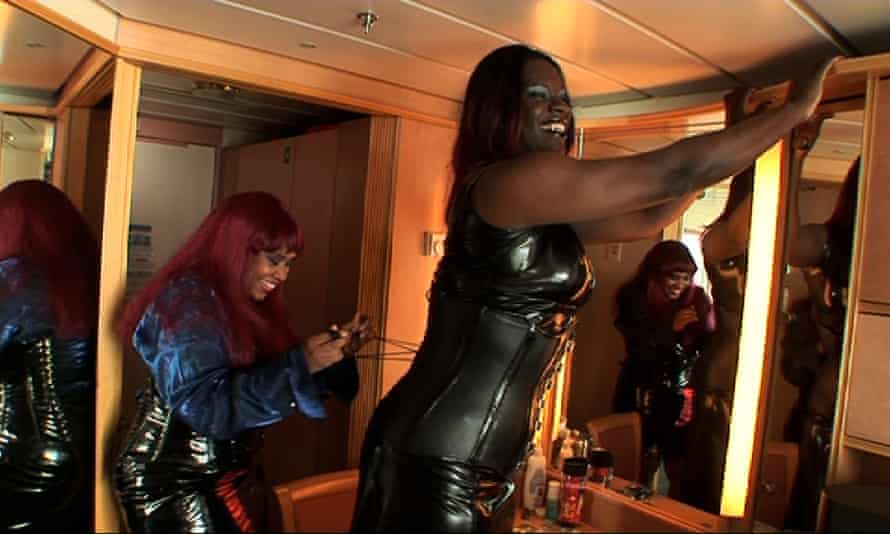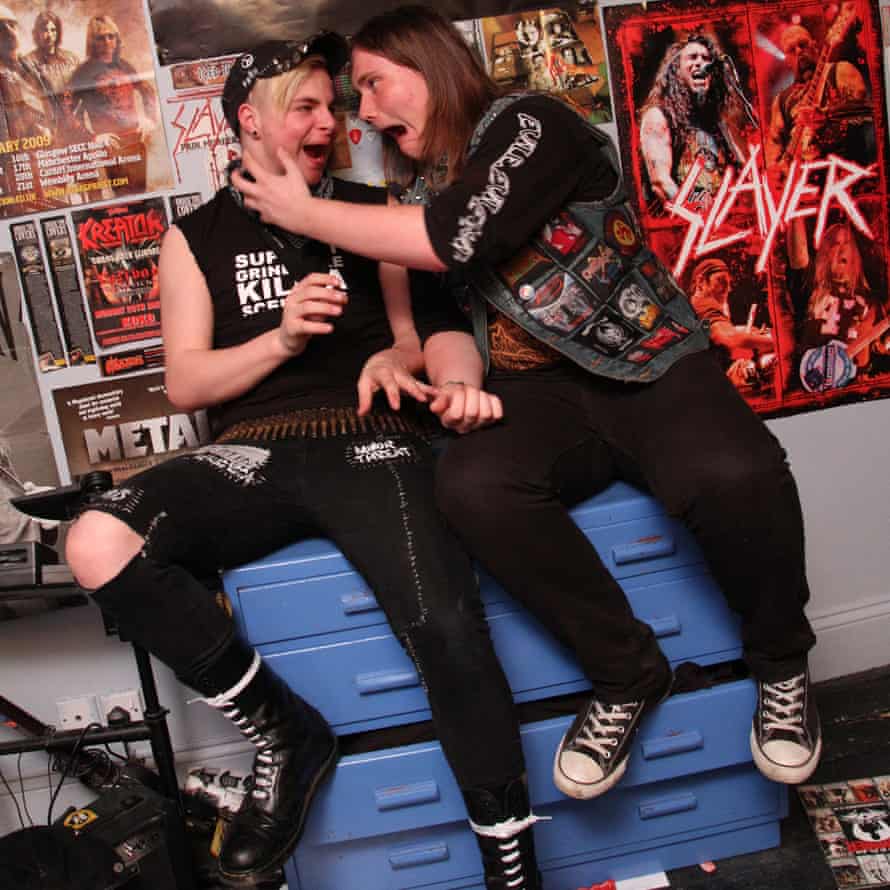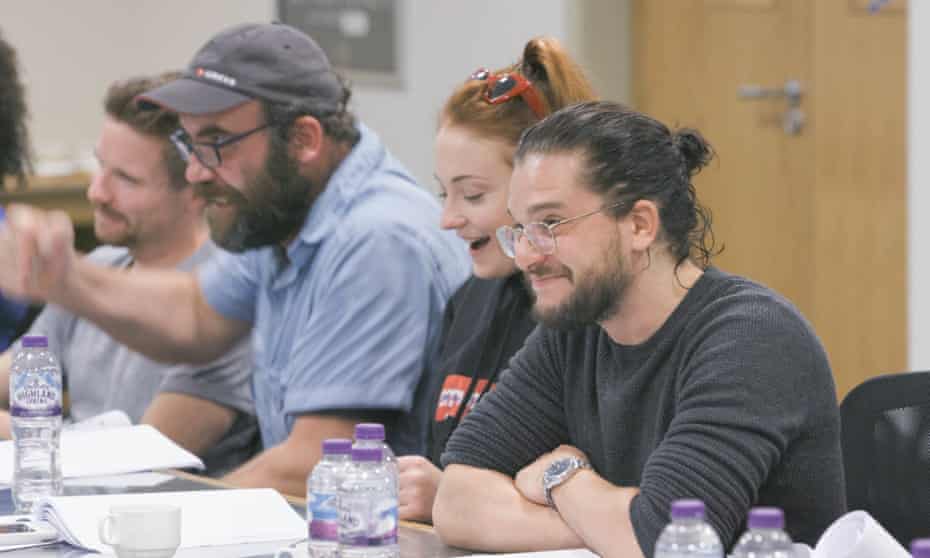There are many wonderful moments in the films of Jeanie Finlay but my current favourite is in Seahorse, her intimate and profoundly moving 2019 documentary about the struggles of transgender man Freddy McConnell to conceive and give birth to his own child. The scene takes place during a party at Freddy’s mum’s house as a room full of family friends, all women, talk to Freddy about the clothes he’ll wear during pregnancy.
Gradually, Freddy starts to slide out of the conversation. Finlay’s camera picks out moments of awkwardness, focusing in on her subject as the clothes-talk turns to a loud discussion of 70s Greek pop singer Demis Roussos – who Freddy has never heard of – his masculinity and his penchant for kaftans. Suddenly, we’re in a modern-day version of Abigail’s Party and Freddy has become invisible. But not to Finlay, and not to us. It’s simultaneously very funny and heartbreakingly sad, a moment that showcases Finlay’s unique sensitivity as a film-maker.
“I think I now know how to zone in on those moments,” says Finlay. “You’re editing in your mind already, spotting scenes in real time. It’s like you’re trying to watch the film before it’s made.” Finlay is speaking from her home in Nottingham before the start of All That Glimmers, an online retrospective of her 15-year career in documentaries; they move from early films such as 2007’s Teenland, which documented the lives of four British adolescents from inside their bedrooms, to Sound It Out, the award-winning 2011 portrait of a struggling Teesside record shop. More recent works include her remarkable 2015 investigation into the strange and sad life of masked 70s Elvis soundalike Jimmy “Orion” Ellis.

It is perhaps no surprise that Finlay is easy to talk to. Her films convey a relaxed intimacy and all seem to be about people looking for safe spaces where they can be accepted. “I guess I’m interested in giving time to shy people,” she says. “As a teenager I spent a year not leaving my bedroom. They put me on lithium at 13. My parents didn’t know what to do with me so I went and stayed with my gran in Winchester. She sort of saved me. She just said: express yourself. I did embroidery, painting, made bread, did gardening. People wanted me to go into residential care but I was saved because I was allowed to discover myself.”
Finlay grew up outside Stockton-on-Tees in the early 80s, with a Scottish father who worked in life insurance and a more artistic mum. “She’s got four brothers. One’s an artist, one’s a painter. My Scottish grandma would take me aside and say, don’t end up like your mother.” Defying this advice, Finlay studied art at Cleveland College of Art and Design and then contemporary arts at Nottingham Trent University. Her first film, Home-Maker, grew out of an installation art project. “I was basically taking portraits of housebound older people and they all wanted to have a conversation with me,” she says. “So it was as instinctive as: oh, the conversation is the work, I should just film it. The films are enough.”
As a result of Home-Maker, Finlay was commissioned to make Teenland. “That was quite overwhelming as I was massively pregnant at the time,” she says. “But it was also an opportunity to explore a painful and confusing time in my own life.” What’s striking about Teenland now is how Finlay doesn’t judge these teenagers, but embraces the worlds they have created in their bedrooms and shows them growing older, changing their hair, their tastes, their attitudes. It becomes a film about transformation. “The bedroom is their sanctuary,” says Finlay, “With my own teenage years I realised I was just ill with the pain of adolescence. I needed some time to be a chrysalis. Teenland is about that. All any teenager wants is to be loved and understood.”

It’s a theme that carried into Finlay’s next film, Goth Cruise – which followed 150 “people in black” on a five-day cruise around Bermuda alongside 2,500 regular punters – and her breakout success, 2011’s Sound It Out. “I was trying to make the Orion documentary but couldn’t get any money,” says Finlay. “My mum had breast cancer and I was going home to Stockton-on-Tees, supporting her through that, and it was horrible.” Finlay’s sanctuary became the record store of her youth, Sound It Out, run by her old school friend, Tom Butchart, and at the time the last surviving independent record shop on Teesside. “That’s the film where you literally see me learning,” says Finlay. “Lots of camera wobble. I don’t care. It captured the spirit of the shop.”
Filmed and edited in six weeks on a crowdfunded budget and an Arts Council England grant, Sound It Out is another film about a haven from the outside world. But it is also about passion, mortality, the protective power of music and the profundity of small moments. “I pitched it to the BBC,” says Finlay, “and they were like, ‘No one wants to watch this. Too boring, too small.’ I was like, ‘That’s the value of it!’” Luckily, a last-minute screening at the South by Southwest film festival resulted in rave reviews and Sound It Out became the official film of Record Store Day, opening some previously closed doors. “We toured the States with it, the BBC bought it. It was mental,” says Finlay. “I think audiences just liked the kinds of people I focused on. Not alpha characters. British life is dominated by alpha males. They don’t need more exposure.”
Sound It Out led to The Great Hip-Hop Hoax, about a pair of rappers from Dundee who passed themselves off as a Californian hip-hop duo, the fantastic and quietly devastating Orion: The Man Who Would Be King, and Panto!, about a group of financially straitened Nottingham am-dram players putting on a production of Puss in Boots. This seemingly disparate trio of films are all linked by Finlay’s keen and sympathetic eye. “They’re all about people trying to find out who they are,” she says, “even if some are doing that in extreme ways. With The Great Hip-Hop Hoax I liked the idea of a lie that grew to weigh these two kids down. Making Orion, I felt like an archaeologist digging into the complex life of this spoilt boy who really wanted his dream. Even with Panto!, you’re focused on people willing to undergo transformation to discover themselves.”

It was off the back of Orion, and while filming Seahorse, that Finlay received her most unlikely commission. “I got this mysterious email from someone in Ireland saying HBO were gonna call. No other information. So I like Googled them and I was like, ‘Fuck, it’s Game of Thrones, I know nothing about it!” After being primed by a quick summary of the show from a friend (“No one’s safe, anyone can die!”), Finlay was commissioned by Thrones producer Bernadette Caulfield to document the making of the show’s final season.
“I had a meeting where I got all the characters’ names wrong,” says Finlay, laughing, “But I was like: ‘Seven kingdoms, I’ll follow seven different departments, makeup, stuntmen …’ Bernie said, ‘I’ve watched everything you’ve ever made and when I saw Sound It Out I knew I’d got my girl.”
Made alongside Seahorse, sometimes one week on, one week off, Game of Thrones: The Last Watch is an incredible achievement: an epic, exquisitely structured tale of a world’s creation and its dismantling, yet with Finlay’s trademark intimacy and melancholic joy. “Even with Game of Thrones I’m still drawn to shy people with hidden depths,” she says. “I’m still looking for things that make me cry. I don’t think I’ve made a film yet where I haven’t cried in the edit.”

But if the scale of The Last Watch signalled how far Finlay has come as a film-maker, its reception in certain quarters brought home how misunderstood documentary cinema, and her own work, remains. “A lot of people confuse documentary with journalism,” she says. “They don’t recognise the layers of authorship. My husband makes horror films, and he’s just got commissioned to make one by HBO Asia. One of our friends was like, ‘Oh my God, I’ve never met anyone who’s got their second film away. That’s amazing!’ I was like, ‘What am I? Chopped liver?’ And he said, [patronising tone] ‘Oh, Jeanie. I mean real films!’”
Finlay says she has been asked a few times whether she’d ever make a fiction film and while her attitude is “never say never” she does find working with “real actors” quite odd. “We hired a real actor for some of the scenes in Orion,” she says. “And when the job was done, he left. Never saw him again. I’ve stayed in touch with almost all of my documentary subjects.” It’s a line of connection that she says she extends to all her crew. “I’m emotionally vulnerable with my subjects but I’m very tough about production,” says Finlay. “If you work for me, you get paid on the day you invoice, you get mental health supervision. We’re delving into people’s lives, so I want my tiny little area of the film industry to be a better place, where people are valued and looked after.”




















![[Book Review] The Blade Itself (The First Law Trilogy) by Joe Abercrombie](https://bendthekneegot.com/wp-content/uploads/2018/01/1516047103_maxresdefault-218x150.jpg)
















